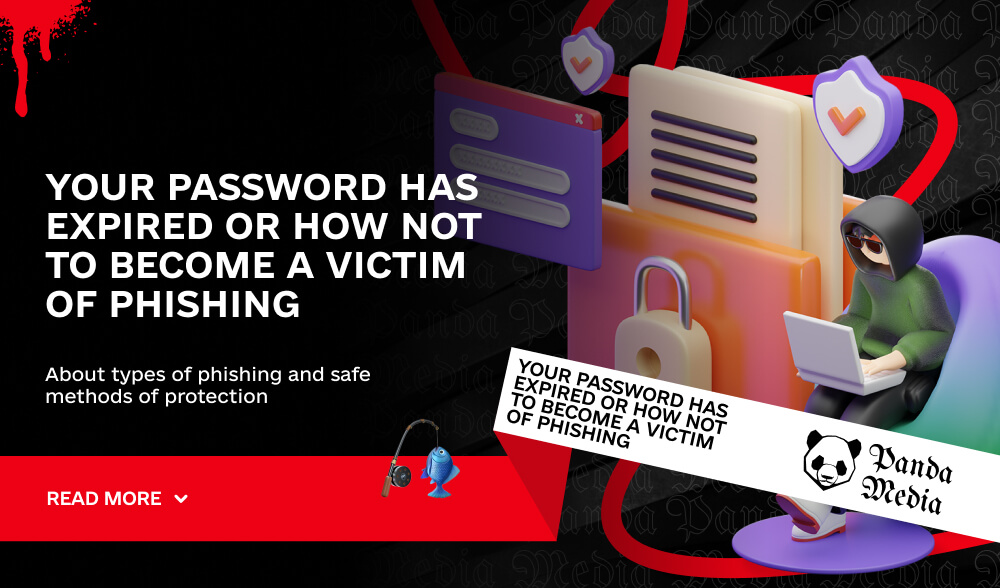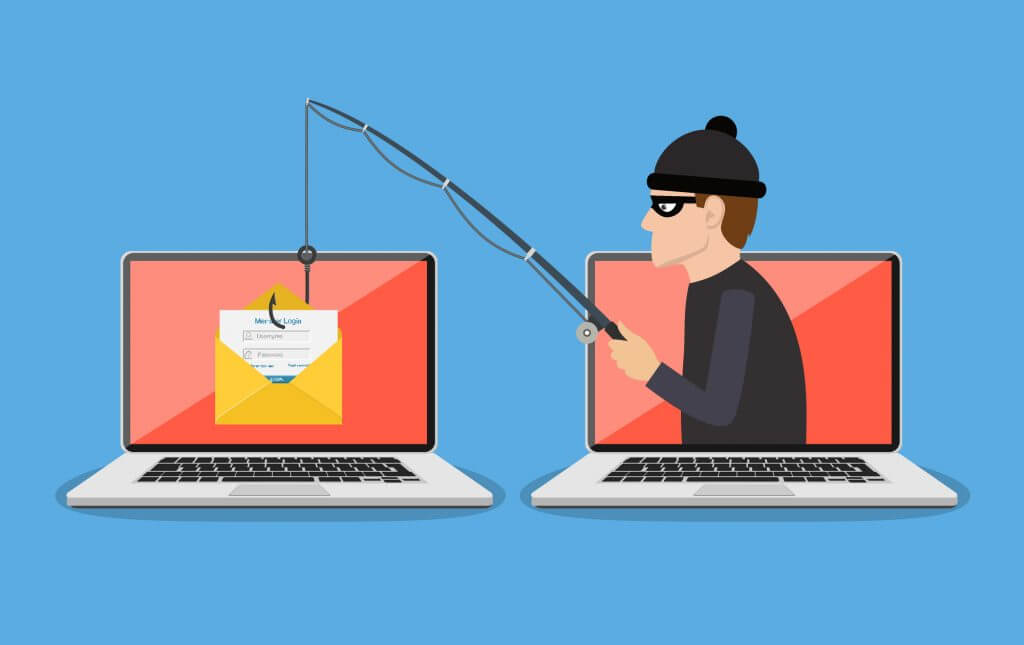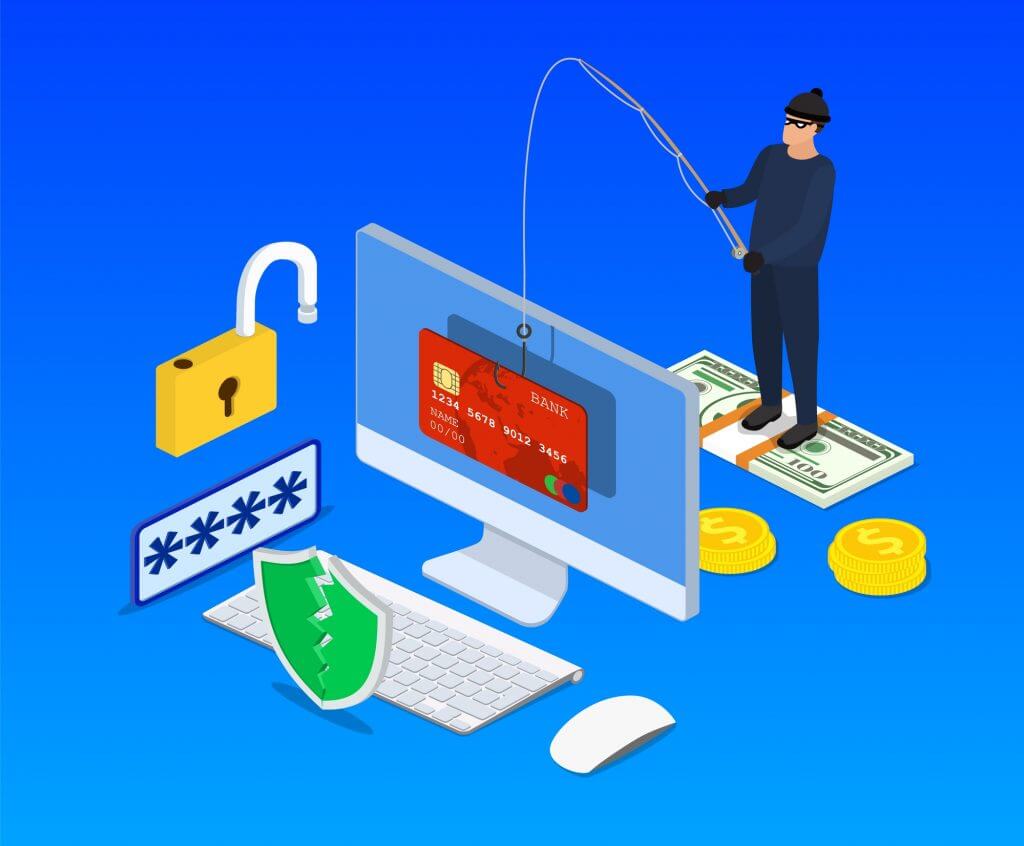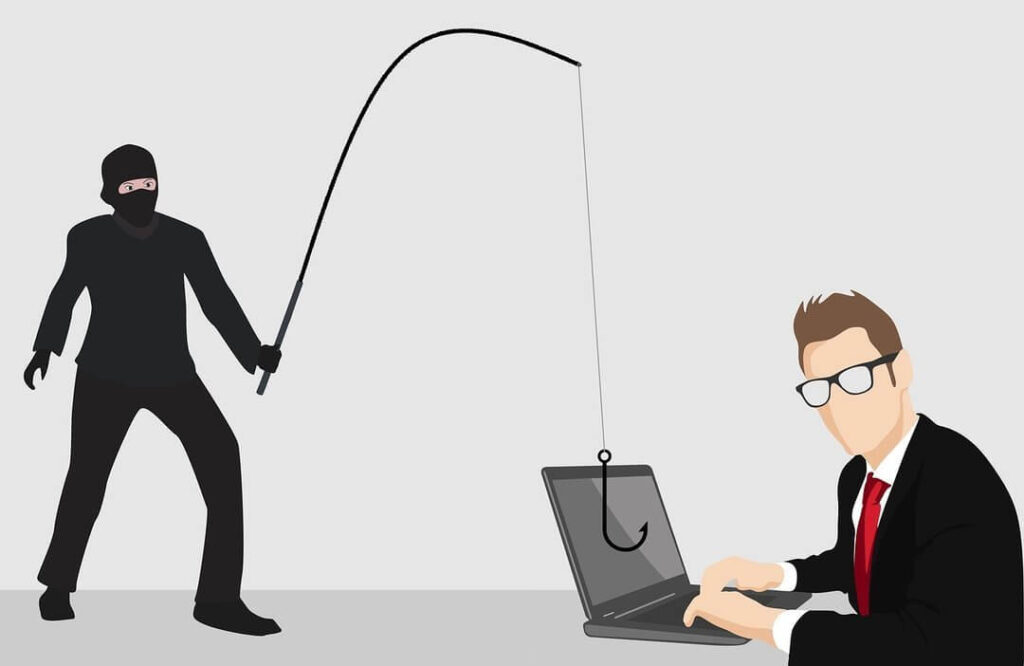Don't miss interesting news

“Your password has expired. Click here to change it immediately.”
Does this message sound familiar? Then you have become a victim of phishing. Here’s what a phishing attack is and how to recognize it.

The number of people working remotely is growing rapidly, as is the number of potential digital threats. One of the most dangerous and widespread types of online fraud is phishing.
Have you ever received an email purporting to be from a bank or other popular online service that asked you to “verify” your account information, credit card number, or other sensitive information? If so, you already know what a phishing attack looks like. The name of this type of fraud comes from the English word fishing. It means that the scammer catches the victim or their data in a sneaky way. The goal of phishing is to obtain valuable data that can be sold or used to extort, steal money or personal data.
According to StationX, almost 5 million phishing attacks occurred in 2022 alone. The main reason is that more and more people use the Internet to communicate, pay for goods or services.
Tip: Which industries are most susceptible to phishing? The financial and banking sectors, as well as e-commerce, are usually the targets of phishing attacks because of the valuable information they store. According to Tessian’s research, the most frequently imitated websites for phishing attacks in 2021 were those of the popular marketplaceAmazon, video conferencing service Zoom, software developer Adobe, and tech giant Microsoft.
Let’s take a look at the most common types of phishing, becausethere are many ways for a phisher to extract confidential information from a victim or gain access to their device.
Interesting fact: This is how unknown persons stole 50 thousand emails of Hillary Clinton’s campaign chairman John Podesta. Many of them contained compromising information. As a result, Clinton lost the 2016 presidential election to Donald Trump and history took a different turn.

Remember these insidious methods of fraudsters and protect your data and yourself. The consequences of phishing can be catastrophic. Your funds can be stolen, your personal information can be sold on the black market, and your accounts can be used for other fraudulent activities.

If you detect any fraud, it is important to notify Cyberpolice. If the criminals try to access your funds through the card, we recommend that you contact your bank’s support service to block the card and access online banking.